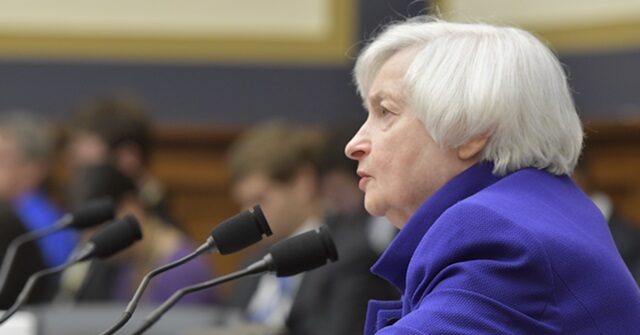During a recent interview on MSNBC’s “11th Hour,” Treasury Secretary Janet Yellen discussed the persistent dissatisfaction many Americans feel regarding their personal finances, attributing this sentiment to the ever-increasing cost of living. Yellen emphasized that high living costs have been a longstanding issue, but the surge of inflation following the COVID-19 pandemic has exacerbated financial strains on many households. This inflationary pressure has made it increasingly difficult, especially for middle-class families, to make ends meet, as they grapple with steep expenses in essential areas such as housing, childcare, and healthcare. Yellen underscored that the Biden-Harris administration is acutely aware of these challenges and sees addressing them as a top priority.
In her conversation with MSNBC host Stephanie Ruhle, Yellen acknowledged that while key indicators of the economy may reflect positive trends, many Americans remain skeptical about their financial well-being. She reiterated the importance of mitigating the high costs associated with various life essentials and outlined several government initiatives aimed at alleviating these burdens. These initiatives include measures in healthcare, such as capping insulin prices for seniors and giving Medicare the authority to negotiate drug prices—efforts that aim to relieve families of significant healthcare costs and foster a more financially secure environment.
The dialogue then shifted to energy, where Yellen noted the Biden administration’s commitment to developing clean energy solutions. This initiative is designed not only to promote sustainable energy use but also to reduce vulnerabilities associated with fluctuating global oil prices, particularly in the context of international crises like Russia’s invasion of Ukraine. She highlighted that investments prompted by the Inflation Reduction Act are pivotal in advancing the transition toward renewable energy sources, thereby lessening America’s dependence on volatile foreign markets and fostering greater economic stability.
As the conversation progressed, Ruhle pressed Yellen on the administrative proposals regarding housing. She inquired whether Yellen wished that the Biden administration had acted more swiftly on housing issues. Yellen acknowledged the complexities involved in truly addressing the housing crisis, asserting that increasing housing supply is a necessary step that requires careful planning and legislative effort. She expressed concern over inaction from Congress on housing initiatives that the president had proposed in the early stages of his term, which would have ideally hastened the resolution of housing shortages.
Yellen did not shy away from recognizing the challenges posed by rising mortgage rates and escalating home prices during the pandemic, particularly for first-time homebuyers. She noted the daunting realities facing these buyers in a market characterized by high interest rates and property values. However, she remained optimistic about the potential for progress, stressing the administration’s focused approach to tackling these pressing issues through sustained efforts and strategic investments designed to foster housing development and affordability over time.
In conclusion, Yellen’s remarks reflect a broader acknowledgment of the complex interplay between inflation, personal finance, and systemic economic issues facing Americans today. The Biden administration’s initiatives aim to address these challenges comprehensively, with a particular focus on reducing the cost of living through healthcare reforms, clean energy investments, and housing supply increases. However, the path to substantial change will require concerted action from legislators and a sustained commitment to the outlined goals of improving financial security for all Americans.

